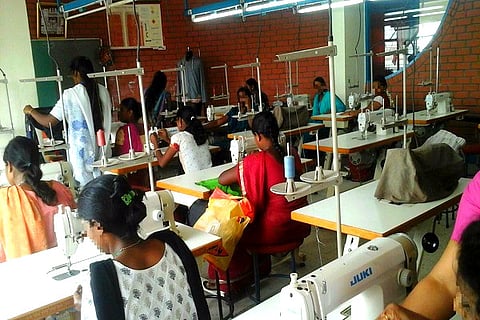

Every eight minutes, a child goes missing in India. According to the National Human Rights commission (NHRC), nearly 40,000 children are kidnapped every year. Of this, a whopping 11,000 are never traced.
Child and human trafficking is a global issue, but India is one of the most affected countries. Data from National Crime Records Bureau (NCRB) in 2013 show that at least 65.5% of crimes committed in India were related to human trafficking. And almost all the victims were women.
While most human trafficking is related to sexual exploitation, it is also done for bonded labour and organ trading. As per data from NCRB, West Bengal is the hub of human trafficking in India with 81.7% of cases involving selling of minors for prostitution, being reported from there.
On a positive note, there are hundreds of NGOs and organisations today in India and across the world that are fighting to either stop human trafficking or rescue those trapped. In fact, the United Nations also has an entity called United Nations Global Initiative to Fight Human Trafficking (UN.GIFT) which works with all stakeholders to fight human trafficking.
But once someone is rescued, what next? A number of organizations provide counselling to help women overcome the trauma. But what about a sustainable livelihood?
The same thought came to 25-year-old Pritham Raja, who wanted to do something to help women who are subjected to violence. While the initial interest was triggered by the voluntary work he was doing at college in Georgia Tech in the US, watching Sunitha Krishnan’s TED talk changed Raja’s life. Sunitha Krishnan, who is a rape survivor, has dedicated her life to rescuing women and children from sex slavery.
Raja decided to come back to India and start something to help women who are victims of atrocities. He met Sunitha and what came out of the discussion was a need for reintegration of rescued women. That was how Threads of Freedom (ToF) was founded in 2015 in Bengaluru.
ToF gives victims of human trafficking a stable job and accommodation to lead respectable lives. It provides women with training, counseling and employment.
ToF has tied up with non-profit organisations, garment manufacturers.
ToF works with five garment factories and six to seven fashion brands. This includes one large factory in Bengaluru and four in Mumbai. It gives the factories, labour in the form of these women and large orders from ToF’s partner brands, and women in return get a job with a starting wage of at least Rs 7,500-8,000. What’s in it for fashion brands is the fact that they’re majorly responsible in providing employment to rescued traffickers in the form of orders they place. The idea is to create a win-win situation for those involved and build a sustainable business model.
Once a trafficking victim is admitted into ToF’s program, they receive full medical care and are provided food and accommodation. They then undergo training and are employed at a partner facility. Once employed, they continue to have access to accommodation and food at a subsidised price.
“It is like the concept of fair trade. We work with only certified and labour-compliant factories. We ensure they are clean, do not indulge in child labour and have policies against sexual harassment,” Raja says, adding that once hired, the candidates are incorporated into the workforce like any other employee. They are not singled out as different nor do they necessarily work on the clothes we purchase. This is done to maintain anonymity while ensuring job security.
Depending on the order size, ToF receives commission from each brand. Commissions range from around 3% for orders worth a few crores and go up to 10-15%. Revenue earned is then fully ploughed back into the business.
ToF started operations with some bootstrapped amount. Further operations and expansion were funded by a grant it received from incubator UnLtd India and a crowdfunding campaign where it raised $30,000.
ToF manages the entire process from introducing candidates to its program, employing them in facilities, to overseeing the manufacturing process and marketing and selling the clothes.
It is only the beginning for ToF. Having reintegrated around 50 women so far, the next step is to expand to other cities. In the near future, ToF will enter Delhi and Hyderabad. In the long term, ToF wants to be present in every single city, identify garment factories in these cities and employ its candidates there.
“The biggest challenge is the trauma these victims have been through. They are kidnapped when they are little and by the time they are rescued, it is sometimes too late for them to receive full-fledged education. So we train them in jobs that they can do,” Raja says.
At the end of the day, all that these women want is to lead a respectable life. And being able to earn for themselves serves that purpose.